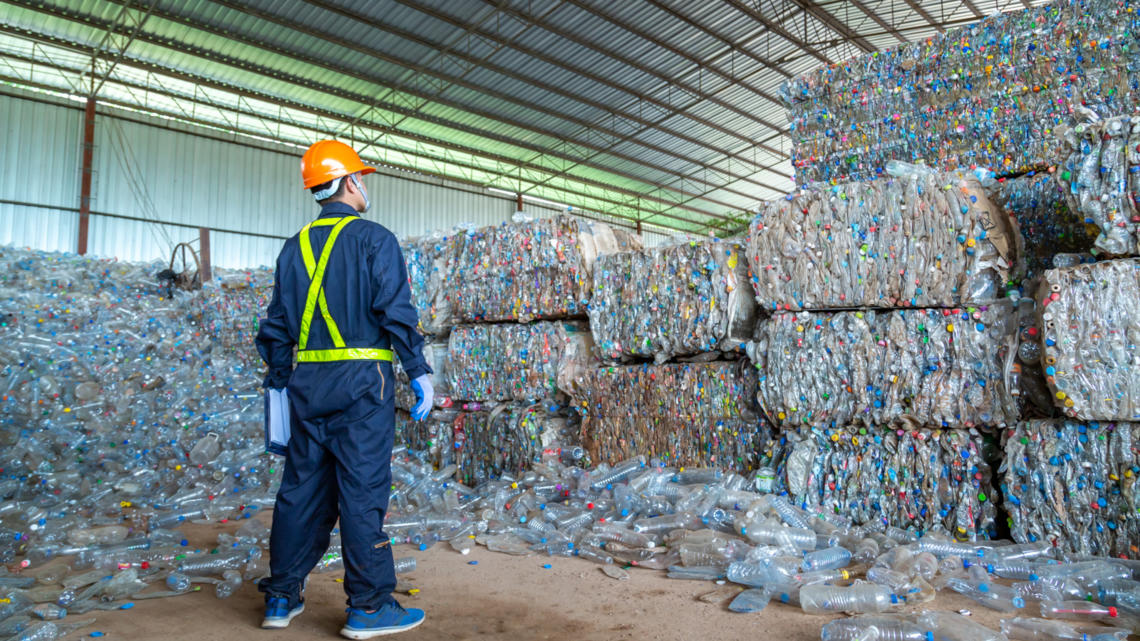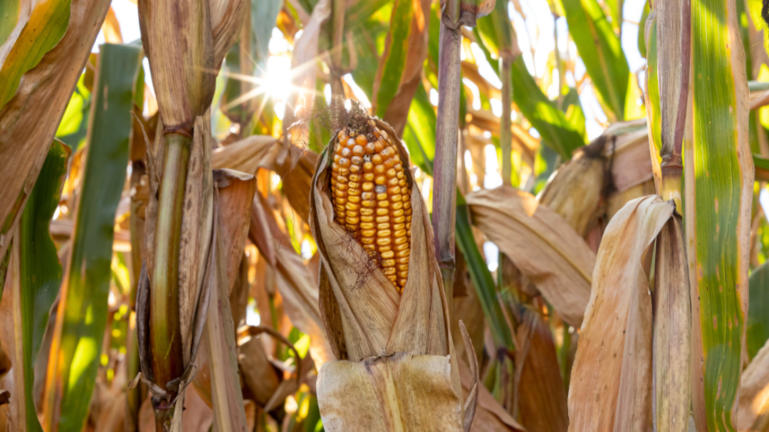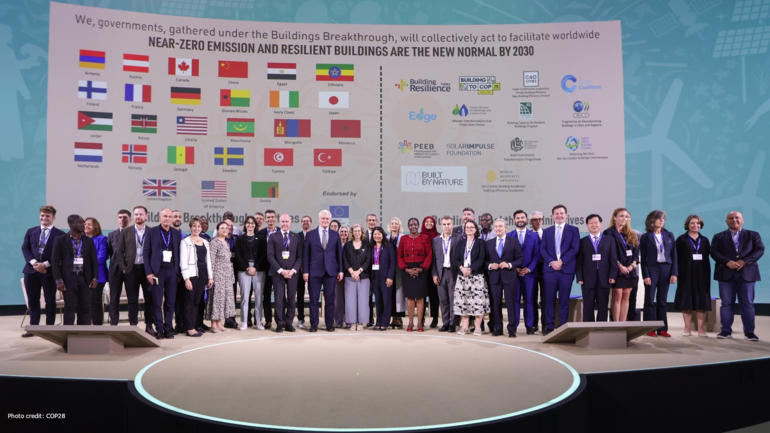Plastic has become an integral part of modern life. Thanks to its affordable, durable and versatile qualities, it is used in many applications such as packaging, clothing, cosmetics, construction and agriculture. However, there are critical downsides to its widespread use: an alarming amount of plastic is discarded as waste each year, which has severe consequences for wildlife and the environment.
Today, the world is facing a plastic pollution crisis. The current life cycle for plastics is far from circular, with only 33 million tonnes (Mt), or 9% of plastic waste created, going through recycling. A shocking 22 Mt of plastics leaked into the environment in 2019, 6.1 Mt of which reached rivers, lakes and the ocean.1 Plastic leakage to the ocean is set to triple by 2040.2
The urgency to address this issue is growing, with environmental NGOs, civil society and investors all demanding that companies step up action and take responsibility for mitigating the risk of plastic pollution. Recent examples of this mounting pressure include the plastic litigation by ClientEarth on a few companies in France; shareholder proposals filed by As You Sow for 10 consumer products companies and retailers calling for commitments to absolute cuts in the use of plastic packaging; or more recently, in early May 2023, a statement signed by 185 investors calling on companies in the fast-moving consumer goods and grocery retail sectors to act more swiftly to address the plastics crisis by reducing their dependency on single-use plastic packaging.
Ending plastic pollution and transitioning to plastic circularity is a complex issue and companies cannot tackle this challenge alone. This is why 100 companies and financial institutions under the Business Coalition for a Global Plastics Treaty are calling for legally binding global rules and measures in the future Global Plastics Treaty currently being negotiated by UN countries. The Business Coalition has developed policy recommendations related to the reduction of plastic production and use through a circular economy approach; circulation of all plastic items that cannot be eliminated; and prevention and remediation of remaining, hard-to-abate plastic leakage into the environment. Their recommendations also cover monitoring and reporting issues to support the creation of harmonized reporting standards for the private sector and governments to better understand the risks, opportunities and impacts related to plastic pollution.
To bridge the gap between the actions companies are taking and the global objective to end plastic pollution, a robust corporate accountability system should be added to the treaty outcome document. Such an accountability system would make it easier for governments, investors, civil society, suppliers and consumers to assess the credibility of commitments and progress on compliance and follow-up actions that companies take to end plastic pollution and transition to a circular economy for plastics.
In our latest white paper, we propose an accountability system consisting of four phases that frame the journey for companies to end plastic pollution and transition to a circular economy for plastics:
- Set an ambition for the transition to compliance with the plastic treaty/science-based targets;
- Translate the target into a plastic pollution action plan for implementation at the company level;
- Derive accurate plastic pollution reduction accounting metrics (in line with agreed treaty goals) over time through an accounting mechanism for plastic pollution;
- Disclose the metrics externally through a global baseline reporting framework for accountability (reporting and disclosure).
As part of this accountability system, accounting is a key step for companies to:
- Understand the metrics companies should use to set their baseline and take action to end plastic pollution, including plastic footprinting to measure the plastic leakage occurring in their value chain and caused by their operations. Measuring leakage will inform the interventions needed for the plastic pollution caused by their business operation to drastically fall; determining circularity will help companies reduce resource use and minimize waste.
- Understand the data needed to compute these metrics. Tackling the waste mismanagement issue requires the disclosure of some data to enable the participation of actors throughout the value chain. For example, companies could increase the level of precision of country-based waste management data by accessing data points on polymer production levels (volumes, types of polymers, source of material), recycling capabilities and country-based plastic waste generation.
Published just before the 2nd session of the Intergovernmental Negotiating Committee (INC-2) taking place in Paris from 29 May to 2 June, this white paper will support the development of a robust corporate accountability system. The approach for monitoring and disclosure could build on Sustainable Development Goal (SDG) 12.6 (Encourage companies to adopt sustainable practices and sustainability reporting) as well as target 15 of the Kunming-Montreal Global Biodiversity Framework.
We ask the Member States of the United Nations to support the development of an accountability system with globally harmonized disclosure obligations and reporting standards, enhance the transparency of public and private sector actors and monitor their progress and compliance. More specifically, we ask for the following provisions to be integrated into the draft global plastics instrument:
-
A provision to reflect an aggregation mechanism tracking corporate progress.
On the disclosure side, efforts mainly focus on target-setting and voluntary commitment platforms such as the Ellen McArthur Foundation Global Commitment, WWF’s ReSource: Plastic and CDP. It is important to build on these initiatives to develop a globally aggregated mechanism that adequately tracks corporate progress on the commitments to plastic pollution reduction already made and – importantly – how this corporate progress might contribute to fulfilling new global plastic pollution reduction targets or national plastic waste reduction plans set by governments.We need a mechanism to (i) track corporate progress on commitments and targets for plastic pollution reduction, (ii) independently verify this progress and (iii) link it to the global and national targets for ending plastic pollution. This could drive ambition and inform society of the progress that the treaty will have in the coming decade. Importantly, this could also enable the inclusion of aggregate corporate contributions to any global stock-taking process (at both national and global levels), helping the treaty secretariat assess how business is contributing to the world's collective progress on reducing plastic waste.
-
A provision to set up a Plastic Pollution Corporate Accountability Council.
This Council would have the task of increasing coordination between actors (target-setting organizations, standard developers related to accounting, reporting and disclosure on plastic pollution/circularity) to align standards and their application and work with policymakers to ensure the adoption of consistent and robust methodologies for plastic pollution and plastic circulatory accounting across geographies.
To avoid an increased reporting burden on companies, all these accounting metrics need to be embedded in a reporting and disclosure standard – that can build on the CDP plastic module launched this year. The future Global Plastics Treaty provides the opportunity to develop a standardized framework for reporting and disclosure on plastic pollution and circularity that would allow companies to focus corporate time, energy and resources to compete on performance and not on methodologies. To enable this, we ask the UN Member States to embed corporate accountability into the draft global plastics agreement.
[1] Organisation for Economic Co-operation and Development (OECD) (2022). Global Plastics Outlook: Economic Drivers, Environmental Impacts and Policy Options. Retrieved from: https://www.oecd-ilibrary.org/sites/f9c3a6c4-en/index.html?itemId=/content/component/f9c3a6c4-en.[2] Pew Charitable Trusts and SYSTEMIQ (2020). Breaking the Plastic Wave: A comprehensive assessment of pathways towards stopping ocean plastic pollution.








